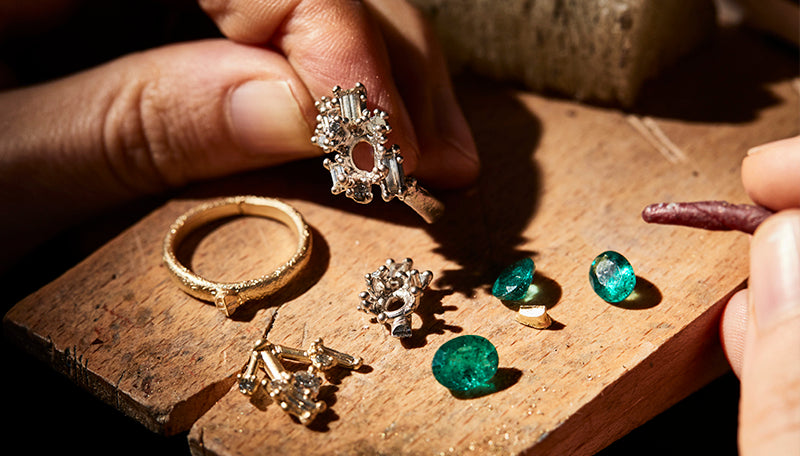Table of Contents
What is a Pawn Shop and How Can it Function?
A pawn shop is a business that offers tied down credits to individuals who utilize individual things as guarantee. The cycle is straightforward: you bring in a thing of significant worth, like gems, gadgets, or collectibles, and the pawn shop assesses it. On the off chance that the two players settle on a value, the pawn shop loans you a part of the thing’s worth, commonly around 25-60%. You then have a set period to reimburse the credit with interest. On the off chance that you reimburse on time, you get your thing back. On the off chance that not, the pawn shop keeps the thing and can sell it to recover the credit.
The Nuts and bolts of Pawning
Pawning is a clear cycle. This is the closely guarded secret:
Bring in your thing – You take a thing you never again need or need to a how to use pawn shop. The thing ought to have esteem, whether it’s gold gems, a vintage guitar, or a top of the line camera.
Get an appraisal – The pawn shop will evaluate the worth of the thing in view of factors like its condition, market demand, and current pricing.
Get a credit offer – In the event that the shop considers your thing significant, they’ll offer you an advance. The credit sum is normally a level of the appraised worth of the thing.
Consent to the credit terms – On the off chance that you acknowledge the proposition, you’ll consent to a credit arrangement, which includes the interest rate, charges, and the time period for reimbursement.
Reimburse or relinquish – You make some set memories (generally 30 to 90 days) to reimburse the credit. Assuming you repay it, you get your thing back. In the event that you don’t, the pawn shop keeps it.
Contrast Among Pawning and Selling
One of the greatest contrasts among pawning and selling is proprietorship. When you pawn a thing, you’re borrowing cash, with your thing as security. You consent to reimburse the credit within a certain time period, and in the event that you do, you get your thing back. When you sell a thing, you surrender all possession privileges to it in return for cash.
Pawning versus Selling: Which is Better for You?
Everything relies upon your requirements. If you want quick money yet need to keep your assets, pawning is the way to go. In the event that you’re prepared to leave behind a thing for good, selling could appear to be legit. Pawning could likewise be the better choice in the event that the thing has wistful worth or could increase in worth over the long haul.
Step by step instructions to Get the Most Incentive for Your Thing
Keep Your Thing in Great shape
Things in great shape will get a more exorbitant cost. Clean gems, fix broken gadgets, and guarantee your things are in working request prior to pawning them.
Properly investigate things on Market Costs
Research flow market patterns to know the going rate for your things. This can assist you with understanding the shop’s proposition and give you an edge in exchanges.
Search Around to Analyze Offers
Try not to make due with the principal offer you get. Visit various pawn shops and contrast offers with guarantee you get the best arrangement.
Getting Numerous Appraisals
Getting numerous appraisals will assist you with understanding the genuine market worth of your thing. Not all pawn shops are equivalent, so shopping around can assist you with securing a more ideal arrangement.
Options in contrast to Using a Pawn Shop
Assuming pawning isn’t ideal for you, there are a few other choices for obtaining cash gold buyers Melbourne:
Individual Advances and Lines of Credit
On the off chance that you have great credit, individual advances or lines of credit might offer better terms and lower interest rates than a pawn shop credit.
Selling Things Online or at Swap meets
Selling your things through and through may be a decent choice if you would rather not manage the interest rates or risk related with pawning.
Using Resources as Insurance for Customary Advances
A few financial institutions might acknowledge important things as insurance for a credit, possibly offering you more ideal terms than a pawn shop.
What Occurs on the off chance that You Can’t Reimburse Your Pawn Advance?
On the off chance that you default on a pawn credit, the pawn shop will keep your thing and sell it to recover the advance sum. Notwithstanding, you can frequently broaden or recharge the advance assuming that you can’t reimburse within the predetermined time period.
What Happens to Your Thing?
On the off chance that you can’t reimburse the credit, the pawn shop will keep and sell the thing. The thing will never again be yours, and you will not have the option to recuperate it except if you reimburse the credit.
Extending or Renewing Your Advance
On the off chance that you can’t repay the advance on time, ask the pawn shop assuming they’ll broaden or reestablish the credit. This can give you additional opportunity to gather the important assets.
Determination: Is Using a Pawn Shop Ideal for You?
Pawn shops offer a quick, surprisingly simple answer for accessing speedy money, yet they accompany their own arrangement of risks, especially exorbitant interest rates and the likely loss of your thing. Understanding the cycle and weighing the advantages and disadvantages will assist you with making an informed decision about whether pawning is the best choice for you. Whether you want fast money for a crisis or need to clutch your things yet access reserves, pawning can be a useful tool — yet provided that you’re ready to meet the terms.


